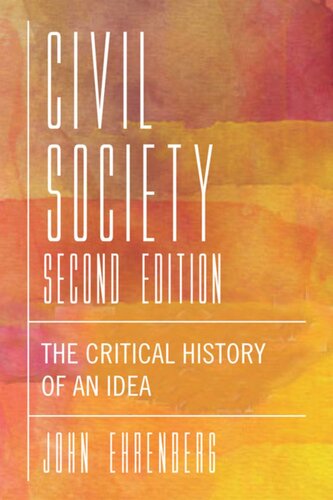

Most ebook files are in PDF format, so you can easily read them using various software such as Foxit Reader or directly on the Google Chrome browser.
Some ebook files are released by publishers in other formats such as .awz, .mobi, .epub, .fb2, etc. You may need to install specific software to read these formats on mobile/PC, such as Calibre.
Please read the tutorial at this link: https://ebookbell.com/faq
We offer FREE conversion to the popular formats you request; however, this may take some time. Therefore, right after payment, please email us, and we will try to provide the service as quickly as possible.
For some exceptional file formats or broken links (if any), please refrain from opening any disputes. Instead, email us first, and we will try to assist within a maximum of 6 hours.
EbookBell Team

0.0
0 reviewsA comprehensive discussion and analysis of two and a half millennia of Western political theory
In the absence of noble public goals, admired leaders, and compelling issues, many warn of a dangerous erosion of civil society, which includes families, religious organizations, and all other NGOs. Are they right? What are the roots and implications of their insistent alarm? How can public life be enriched in a period marked by fraying communities, widespread apathy, and unprecedented levels of contempt for politics? How should we be thinking about civil society?
In Civil Society: The Critical History of an Idea, John Ehrenberg analyzes both the usefulness and the limitations of civil society and maps the political and theoretical evolution of the concept and its employment in academic and public discourse. From Aristotle and the Enlightenment philosophers to Black Lives Matter and the Occupy movement, Ehrenberg provides an indispensable analysis of the possibilities of what this increasingly important idea can, and cannot, offer to contemporary political affairs.
In this new, second edition Ehrenberg brings the historical overview up to present day, specifically considering how major events such as 9/11, the global financial crisis, economic inequality, and rapidly advancing technologies alter and shape our relationship to contemporary civil society. Civic engagement, political participation, and volunteerism in contemporary life has faded, he argues, and in order to bring civil society—and all its virtues—back to the fore, we need to counter the suffocating inequality that has taken hold in recent years. Thorough and accessible, Civil Society gives a sweeping overview of a foundational part of political life.